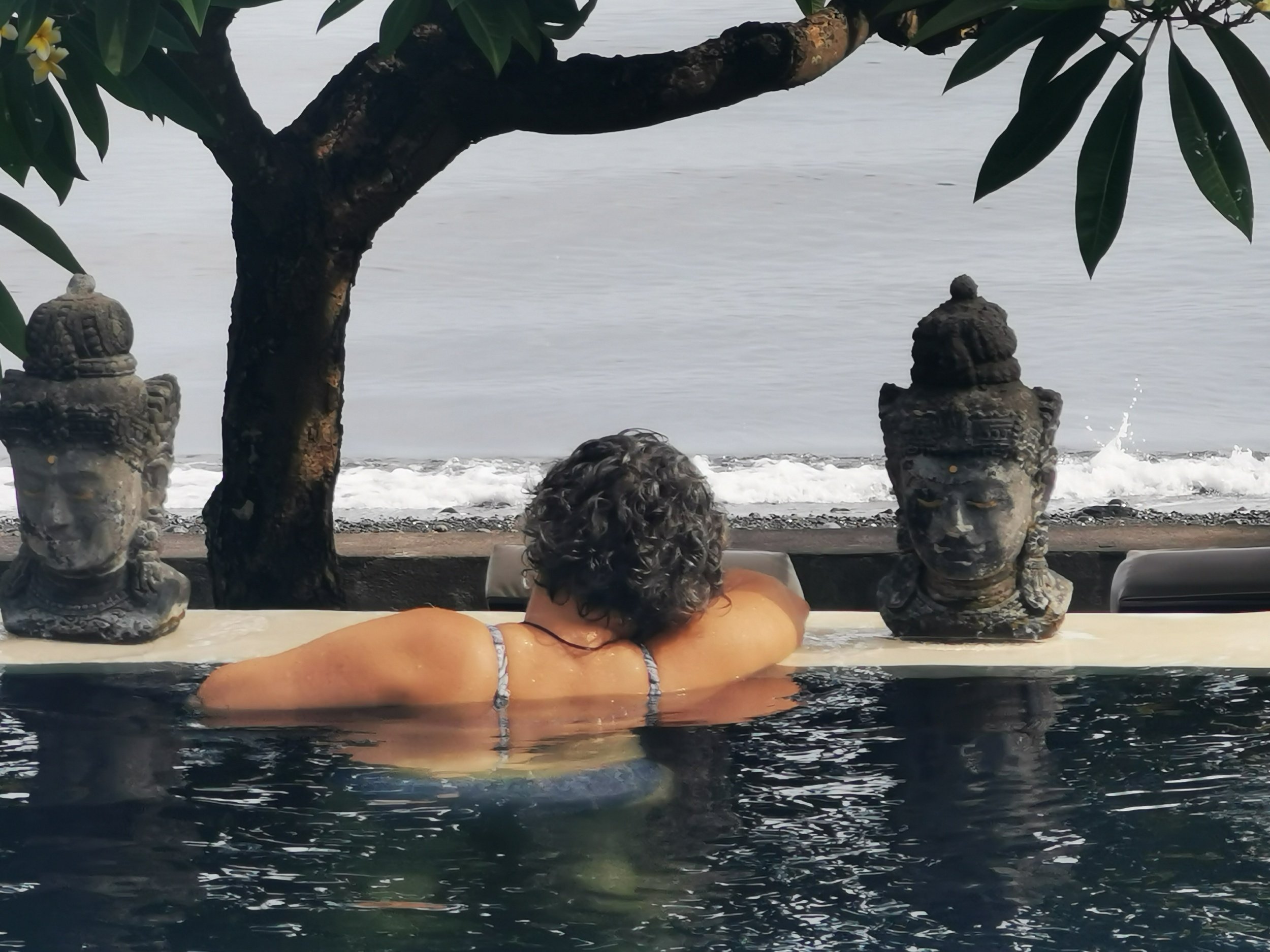The Power of Pushing Pause: The benefits of taking holidays.
Woman sits in an infinity pool starring contemplatively out across to the ocean.
I’ve just got back from 3 weeks of holiday and I’m not going to lie, I needed that break. I felt like I limped across the finish line after a very long hike, uphill and down dale with a few swift river crossings along the way to throw me off my feet and slow me down. But what a difference a few weeks away from the hustle can make! I’m back in the race and raring to go.
We underestimate the benefits of taking a holiday and Australians and New Zealanders have historically been poor at using their annual leave, although there may be a blip in that trend after the lockdowns. In our fast-paced lives, it’s easy to overlook the rejuvenating power of a good break. Taking time off isn't just a luxury; it's a crucial investment in our well-being. This article delves into the science-backed benefits of embracing holidays, examining how they can elevate cognitive function, ignite creativity, and fortify resilience. We'll take a closer look at the biochemical and psychosocial dimensions to understand the impacts better.
A person rests in a hammock in a bamboo bungalow and looks out over a tropical forest.
Have you ever wondered why our mind feels sharper after a holiday? It's not just the change of scenery – there's solid science behind it. Our brains need downtime to recharge and consolidate memories. Sleep, in particular, plays a pivotal role in cognitive function, as highlighted in a study from "Nature Reviews Neuroscience" (Walker, 2017), shedding light on its crucial role in memory processing.
And taking a break isn’t just about relaxation, although how sweet it is to have nowhere to be and nothing to do? Taking a break and pushing pause is a catalyst for creativity. When we step back, our minds get the freedom to explore new ideas. Research in the "Journal of Occupational and Organizational Psychology" (De Bloom et al., 2014) underscores how recovery experiences, whether through meditation or spending time in nature, can significantly boost creative thinking.
It’s not just our brains that get a boost from a break, it also affects our biochemistry in other ways. Stress, especially chronic stress, can wreak havoc on our hormones, notably cortisol. Taking a break, however, helps regulate these hormonal levels. A comprehensive study in the "Journal of Clinical Endocrinology & Metabolism" (McEwen, 2008) emphasizes the role of rest in maintaining a healthy hormonal balance and preventing the adverse effects of persistent stress.
If you have the opportunity to take time out with friends and family it’s also an opportunity to strengthen social bonds. Connecting with others during breaks has proven beneficial for building resilience. Classic research from the "Journal of Personality and Social Psychology" (Cohen & Wills, 1985) illuminates the protective effects of social support on mental health and resilience.
In essence, taking time off, pushing pause, and taking a holiday isn’t an indulgence; it’s a strategic move for a healthier, more resilient you. It’s a chance to catch up on sleep, engage in creative pursuits, nurture relationships, and recharge your resilience battery. I gained so much from my holiday this year the first thing I did when I got back was work out when my next holiday(s) would be. Know that when you’re planning and taking your holidays, you’re not just unwinding - you’re investing in your cognitive prowess, creativity, and resilience (and it’s backed by science)!
Mary-Leigh is a nutritional medicine practitioner, transformation specialist, and lifestyle coach who has dedicated over 25 years to the welfare and well-being of others. She works with high-performing individuals and organisations with a focus on stress-related illness, burnout, and healthy aging. She is available for individual clinical appointments (online) and as a workplace wellbeing consultant.
References:
Walker, M. P. (2017). The role of sleep in cognition and emotion. Nature Reviews Neuroscience, 18(3), 169–181.
De Bloom, J., Kompier, M. A. J., Geurts, S. A. E., de Weerth, C., & Taris, T. W. (2014). Do we recover from vacation? Meta-analysis of vacation effects on health and well-being. Journal of Occupational and Organizational Psychology, 87(1), 138–157.
McEwen, B. S. (2008). Central effects of stress hormones in health and disease: Understanding the protective and damaging effects of stress and stress mediators. European Journal of Pharmacology, 583(2-3), 174–185.
Cohen, S., & Wills, T. A. (1985). Stress, social support, and the buffering hypothesis. Psychological Bulletin, 98(2), 310–357.

